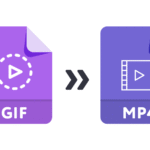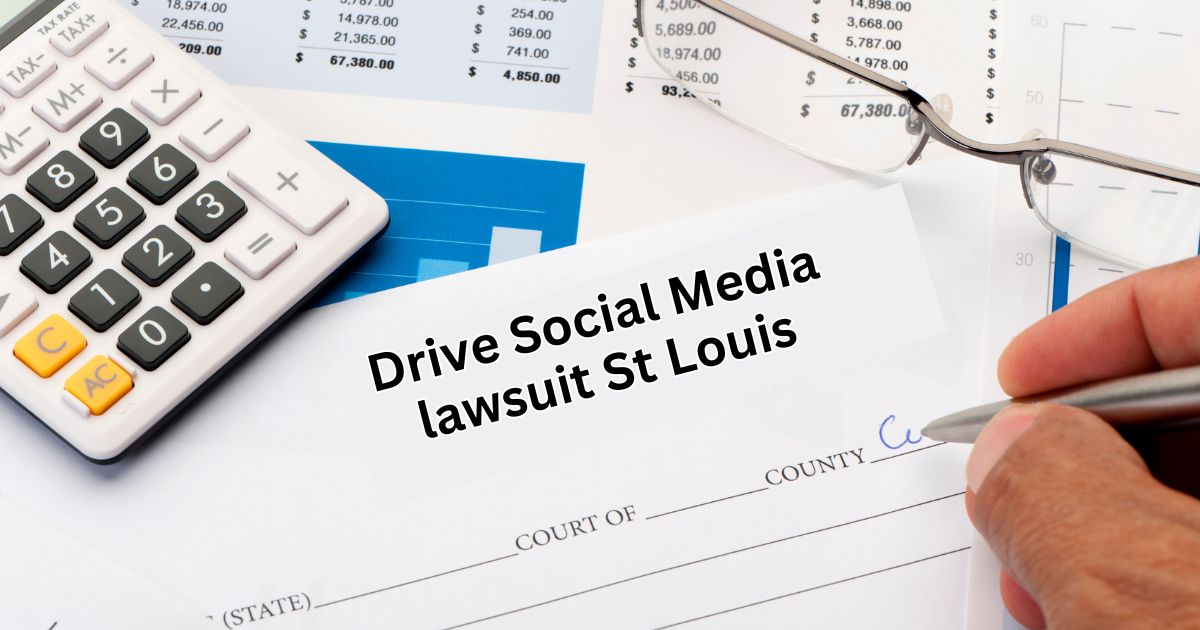In recent years, social media lawsuits have become increasingly prominent, reflecting the growing impact of digital platforms on our lives. These legal battles often involve issues such as privacy violations, defamation, and intellectual property disputes. As social media platforms continue to influence various aspects of our society, understanding these lawsuits is crucial for anyone navigating the digital age. The rise in legal actions highlights the need for clear regulations and accountability in the digital realm. The Drive Social Media lawsuit st louis case exemplifies the broader trend of social media-related lawsuits, showcasing how local legal disputes can have significant implications on a national scale. This article delves into the specifics of the St. Louis social media lawsuit, exploring its background, key players, and broader impact. By examining the case in detail, we aim to provide a comprehensive understanding of how such legal conflicts unfold and their potential consequences.
Significance of the St. Louis Case
The St. Louis social media lawsuit has garnered significant attention due to its unique circumstances and potential ramifications. Unlike other cases that may involve large corporations or high-profile individuals, this lawsuit focuses on a local issue with widespread implications. The case highlights the intersection of technology, law, and community dynamics, making it a pivotal example of how social media disputes can affect everyday lives.
Understanding the significance of this case requires an exploration of the specific allegations and the broader context of social media law. By examining the details of the St. Louis lawsuit, we can gain insights into the evolving landscape of digital litigation and its impact on local communities.
Background
What is a Social Media Lawsuit?
A social media lawsuit involves legal action taken in response to issues arising from the use of social media platforms. These lawsuits can address a range of concerns, including defamation, privacy breaches, intellectual property theft, and more. The digital nature of social media complicates these disputes, as traditional legal frameworks often struggle to keep pace with technological advancements.
In essence, a social media lawsuit seeks to resolve conflicts that arise from the interactions and content shared on platforms like Facebook, Twitter, and Instagram. The outcomes of these cases can set important precedents for how similar disputes are handled in the future. Understanding the basics of social media lawsuits helps in grasping the complexities of individual cases, such as the one unfolding in St. Louis.
Historical Context of Social Media Lawsuits in St. Louis
The St. Louis social media lawsuit is part of a broader historical context of digital litigation in the region. While not as prominent as some high-profile cases, it represents a significant local example of how social media disputes are addressed. Historically, St. Louis has seen its share of legal battles related to digital content, reflecting the growing importance of these issues.
The evolution of social media in St. Louis mirrors trends seen across the country, with increasing legal actions addressing various aspects of online interactions. This local case provides a snapshot of how these broader trends manifest in specific communities, offering valuable insights into the dynamics of social media law in a regional context.
Key Players in the St. Louis Lawsuit
The Plaintiffs: Who are They?
The plaintiffs in the St. Louis social media lawsuit are individuals or entities who have initiated legal action. In this case, the plaintiffs’ motivations and backgrounds play a crucial role in understanding the dispute. Typically, plaintiffs in social media lawsuits seek redress for perceived harms, such as defamation, privacy violations, or financial losses.
The specific identities and motivations of the plaintiffs in the St. Louis case provide important context for the lawsuit. By examining who they are and what they are seeking, we can better understand the nature of the conflict and the potential outcomes. The plaintiffs’ perspectives are essential for grasping the broader implications of the case.
The Defendants: Who are They?
The defendants in the St. Louis social media lawsuit are the parties being accused of wrongdoing. These may include individuals, companies, or organizations involved in the alleged misconduct. Understanding the role of the defendants and their responses to the allegations is crucial for a comprehensive view of the lawsuit.
Defendants in social media cases often face challenges in defending themselves against complex digital claims. Their legal strategies and arguments are key components of the case, influencing its progression and outcome. Analyzing the defendants’ positions provides insight into the broader legal landscape surrounding social media disputes.
The Legal Framework
Relevant Laws and Regulations in Missouri
The legal framework governing social media lawsuits in Missouri includes various state and federal laws that address privacy, defamation, and other relevant issues. Missouri’s legal system provides specific guidelines for handling digital disputes, reflecting the state’s approach to social media regulation.
Understanding the relevant laws and regulations helps in grasping how the St. Louis lawsuit fits within the broader legal context. These laws set the parameters for legal actions, influencing the strategies of both plaintiffs and defendants. A clear grasp of Missouri’s legal framework is essential for interpreting the nuances of the case.
Key Legal Precedents Impacting Social Media Lawsuits
Legal precedents play a significant role in shaping the outcomes of social media lawsuits, including the Drive Social Media lawsuit St Louis. Key court decisions in Missouri and beyond have established important principles for handling digital disputes. These precedents provide a foundation for understanding how similar cases are likely to be adjudicated.
Examining relevant legal precedents helps in predicting potential outcomes and understanding the legal arguments at play in the St. Louis case. By analyzing previous rulings, we can gain insights into how the courts may approach issues such as defamation, privacy breaches, and other aspects of social media litigation, including those specific to the Drive Social Media lawsuit St Louis.
Case Details
Initial Allegations and Claims
The initial allegations in the St. Louis social media lawsuit center around claims made by the plaintiffs against the defendants. These claims often involve accusations of defamation, privacy violations, or other forms of digital misconduct. Understanding the specifics of these allegations is crucial for assessing the case’s merits.
The initial claims set the stage for the legal proceedings, influencing how the case unfolds. By examining the nature of the allegations, we can better understand the central issues and the potential implications for all parties involved. The details of these claims are key to grasping the broader context of the lawsuit.
Major Legal Arguments Presented
Throughout the lawsuit, both plaintiffs and defendants present major legal arguments to support their positions. These arguments often involve interpretations of relevant laws, the presentation of evidence, and legal precedents. Analyzing these arguments provides insight into the strengths and weaknesses of each side’s case.
The major legal arguments play a crucial role in determining the outcome of the lawsuit. By exploring these arguments in detail, we can gain a deeper understanding of the legal complexities and the potential impact on the case. The legal strategies employed by both sides are essential for predicting how the case might be resolved.
Evidence and Key Testimonies
Evidence and testimonies are central to the St. Louis social media lawsuit, providing the basis for the court’s decisions. Key pieces of evidence may include digital records, witness statements, and expert opinions. Understanding the role of this evidence helps in assessing the credibility of the claims and defenses presented.
The quality and relevance of evidence and testimonies can significantly influence the lawsuit’s outcome. By examining the key pieces of evidence and the testimonies of involved parties, we can better understand how the case is being evaluated by the court. This analysis provides valuable insights into the legal proceedings.
Impact on the Local Community
Reactions from the St. Louis Community
The St. Louis community’s reaction to the social media lawsuit reflects the broader societal impact of digital disputes. Community members may have varying opinions on the case, influenced by their personal experiences and perspectives. Understanding these reactions provides a glimpse into how the lawsuit resonates with local residents.
The community’s response can also impact the lawsuit’s progression and public perception. By exploring the range of reactions, we can gain insights into the social and cultural factors influencing the case. The local impact of the lawsuit highlights the intersection of law, technology, and community dynamics.
How the Lawsuit Affects Local Businesses
Local businesses in St. Louis may be affected by the social media lawsuit in various ways. The case could influence business practices, public relations strategies, and customer perceptions. Understanding these impacts helps in assessing the broader economic and social implications of the lawsuit.
Businesses may need to navigate the legal and reputational challenges posed by the case. By examining how the lawsuit affects local businesses, we can gain insights into the practical consequences of social media disputes. This analysis provides a comprehensive view of the lawsuit’s impact on the community.
Social Media and Privacy Concerns
Understanding Privacy Issues in Social Media Lawsuits
Privacy concerns are central to many social media lawsuits, including the St. Louis case. Issues such as unauthorized data access, online harassment, and privacy breaches are common in digital disputes. Understanding these privacy concerns helps in grasping the complexities of the lawsuit.
The St. Louis case addresses specific privacy issues that are relevant to the broader discussion of social media law. By examining how privacy concerns are handled, we can gain insights into the legal and ethical dimensions of digital interactions. This analysis highlights the importance of privacy in the context of social media litigation.
How the St. Louis Case Addresses Privacy Violations
The St. Louis social media lawsuit specifically addresses allegations of privacy violations, reflecting broader concerns about digital privacy. The case explores how privacy breaches occur and the legal remedies available to affected parties. Understanding how the lawsuit addresses these issues provides valuable insights into the evolving landscape of social media law.
By examining the details of how privacy violations are addressed in the St. Louis case, we can better understand the legal mechanisms for protecting digital privacy. This analysis sheds light on the broader implications for individuals and organizations involved in social media disputes.
Also Read: Businesses Can Increase Productivity by Investing In
The Role of Social Media Platforms
Responsibilities of Social Media Platforms in Legal Disputes
Social media platforms play a crucial role in legal disputes, as they are often central to the issues being contested. These platforms have responsibilities related to content moderation, user privacy, and compliance with legal requirements. Understanding these responsibilities is key to grasping the broader context of the St. Louis lawsuit.
The role of social media platforms in the St. Louis case highlights the challenges and complexities of managing digital content. By examining how these platforms are involved in the lawsuit, we can gain insights into their legal obligations and the impact on the case. This analysis provides a comprehensive view of the interplay between technology and law.
How Social Media Companies are Responding to the St. Louis Lawsuit
Social media companies’ responses to the St. Louis lawsuit reflect their approach to legal challenges and regulatory compliance. These companies may employ various strategies to address the allegations and protect their interests. Understanding their responses provides insights into the broader implications for the industry.
By examining how social media companies are handling the St. Louis case, we can gain a deeper understanding of their legal and public relations strategies. This analysis sheds light on the broader trends in how social media platforms manage legal disputes and regulatory pressures.
Media Coverage
How the St. Louis Lawsuit Has Been Reported
Media coverage plays a significant role in shaping public perception of the Drive Social Media lawsuit St Louis. News outlets, blogs, and social media platforms report on the case, influencing how it is understood by the public. Analyzing this coverage helps in assessing the broader impact of the lawsuit.
The portrayal of the Drive Social Media lawsuit St Louis in the media can affect public opinion and the legal proceedings. By examining how the St. Louis lawsuit has been reported, we can gain insights into the role of media in legal disputes and the potential consequences for all parties involved. This analysis highlights the intersection of law, media, and public perception.
Influence of Media on Public Perception
The influence of media on public perception is a crucial aspect of high-profile lawsuits, including the St. Louis case. Media coverage can shape how the case is viewed by the public, potentially impacting the legal process and outcomes. Understanding this influence provides a comprehensive view of the broader dynamics at play.
By exploring how media coverage affects public perception, we can gain insights into the ways in which information is disseminated and interpreted. This analysis helps in understanding the broader implications of media involvement in legal disputes and its impact on the St. Louis lawsuit.
The Legal Process
Key Stages of the Lawsuit
The legal process for social media lawsuits, including the St. Louis case, involves several key stages. These stages typically include filing the complaint, discovery, pre-trial motions, trial, and appeals. Understanding these stages provides a framework for following the progress of the lawsuit.
Each stage of the legal process plays a critical role in shaping the outcome of the case. By examining the key stages of the St. Louis lawsuit, we can gain insights into how the legal proceedings unfold and the factors that influence the case’s progression. This analysis provides a comprehensive view of the legal process.
Expected Timeline and Milestones
The timeline of a social media lawsuit can vary depending on various factors, including the complexity of the case and the court’s schedule. Understanding the expected timeline and key milestones helps in anticipating the progress of the St. Louis lawsuit and its potential resolution.
Milestones such as filing deadlines, hearings, and rulings play a significant role in the legal process. By examining these milestones, we can gain insights into the expected timeline of the St. Louis case and the factors that may influence its progression. This analysis provides a clearer understanding of the lawsuit’s trajectory.
Outcomes and Potential Consequences
Possible Legal Outcomes for the Defendants
The legal outcomes for the defendants in the St. Louis social media lawsuit can vary widely, ranging from dismissal of claims to substantial financial penalties. Understanding the possible outcomes helps in assessing the potential impact on the defendants and the broader implications for social media law.
By examining the range of possible legal outcomes, we can gain insights into how the case might be resolved and the potential consequences for all parties involved. This analysis provides a comprehensive view of the potential impact of the lawsuit and its significance for future cases.
Implications for Future Social Media Lawsuits
The St. Louis social media lawsuit may have implications for future legal disputes involving digital content. The case could set important precedents or influence how similar disputes are handled in the future. Understanding these implications helps in grasping the broader impact of the lawsuit on social media law.
By exploring the potential implications for future lawsuits, we can gain insights into how the St. Louis case might shape legal practices and regulations. This analysis provides a forward-looking perspective on the evolving landscape of social media litigation.
Expert Opinions
Insights from Legal Experts on the St. Louis Case
Legal experts offer valuable insights into the St. Louis social media lawsuit, providing analysis and predictions based on their experience and knowledge. These insights help in understanding the complexities of the case and the potential outcomes.
Expert opinions can shed light on the legal arguments, evidence, and broader implications of the lawsuit. By examining these perspectives, we can gain a deeper understanding of the case and its significance. This analysis provides a comprehensive view of the expert commentary on the St. Louis case.
Predictions for the Lawsuit’s Outcome
Predictions for the outcome of the St. Louis social media lawsuit vary depending on legal interpretations, evidence, and arguments presented. Understanding these predictions helps in anticipating the potential resolution of the case and its broader implications.
By exploring predictions from legal experts and analysts, we can gain insights into the possible outcomes and the factors that may influence the case. This analysis provides a forward-looking perspective on the St. Louis lawsuit and its potential impact.
Comparison with Other Social Media Lawsuits
Similar Cases in Different Jurisdictions
Comparing the St. Louis social media lawsuit with similar cases in other jurisdictions provides valuable context for understanding the case. By examining how similar disputes have been handled, we can gain insights into common issues and legal strategies.
Similar cases across different jurisdictions offer lessons and precedents that can inform the St. Louis lawsuit. This comparison helps in understanding the broader trends and patterns in social media litigation. The analysis provides a comprehensive view of how the St. Louis case fits within the larger landscape of digital disputes.
Lessons Learned from Other Lawsuits
Lessons learned from other social media lawsuits can offer valuable insights into the St. Louis case. By examining how previous cases have been resolved and the legal principles applied, we can gain a deeper understanding of the factors influencing the outcome.
Understanding these lessons helps in anticipating potential challenges and opportunities in the St. Louis lawsuit. This analysis provides a broader perspective on the legal landscape and the implications for future social media disputes.
Public and Expert Reactions
Public Opinion on the St. Louis Lawsuit
Public opinion on the St. Louis social media lawsuit reflects the broader societal impact of digital disputes. Understanding how the public views the case provides insights into the social and cultural factors influencing the lawsuit.
Public reactions can also impact the legal process and the perception of the case. By examining these opinions, we can gain a clearer understanding of the broader implications and the role of public sentiment in shaping the lawsuit. This analysis highlights the intersection of law, media, and public perception.
Expert Analysis and Commentary
Expert analysis and commentary offer valuable insights into the St. Louis social media lawsuit, providing a deeper understanding of the legal complexities and implications. By examining these perspectives, we can gain a more comprehensive view of the case and its broader significance.
Expert commentary helps in interpreting the legal arguments, evidence, and potential outcomes. This analysis provides a nuanced understanding of the case and its implications for social media law. The insights offered by experts are essential for grasping the broader context of the St. Louis lawsuit.
The Future of Social Media and Law
How the St. Louis Lawsuit Might Influence Future Legislation
The St. Louis social media lawsuit has the potential to influence future legislation related to digital content and privacy. By examining the case’s impact on legal frameworks, we can gain insights into how it might shape future regulatory approaches.
Understanding how the lawsuit could influence future legislation helps in anticipating changes in social media law. This analysis provides a forward-looking perspective on the evolving landscape of digital regulation and its implications for future cases.
Emerging Trends in Social Media Law
Emerging trends in social media law reflect the ongoing evolution of legal frameworks in response to technological advancements. By exploring these trends, we can gain insights into how the St. Louis lawsuit fits within the broader context of social media regulation.
Understanding these trends helps in anticipating future developments and the potential impact on social media litigation. This analysis provides a comprehensive view of the evolving landscape of digital law and its implications for the St. Louis case.
Resources and References
Important Documents and Legal Resources
Important documents and legal resources related to the St. Louis social media lawsuit provide valuable information for understanding the case. These resources include court filings, legal briefs, and relevant statutes.
Accessing and reviewing these documents helps in gaining a deeper understanding of the legal arguments and evidence presented. This section provides a comprehensive overview of the resources available for further research and analysis.
Further Reading and Useful Links
Further reading and useful links offer additional insights into the St. Louis social media lawsuit and related topics. These resources include articles, books, and online references that provide a broader context for understanding the case.
Exploring these resources helps in gaining a more comprehensive view of social media law and the specific issues addressed in the St. Louis lawsuit. This section provides valuable information for those seeking to delve deeper into the topic.
Conclusion
The Drive Social Media lawsuit St Louis represents a significant example of digital litigation, reflecting broader trends and challenges in social media law. By examining the case in detail, we gain valuable insights into the complexities of social media disputes and their impact on local communities.
The outcome of the Drive Social Media lawsuit St Louis could have important implications for future social media litigation and legislation. Understanding the case’s broader significance helps in anticipating how similar disputes may be handled in the future. This final section provides a forward-looking perspective on the evolving landscape of social media law.










